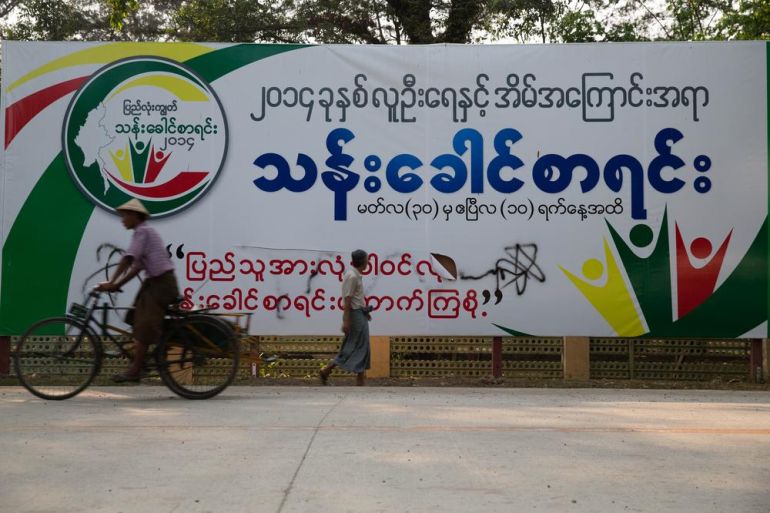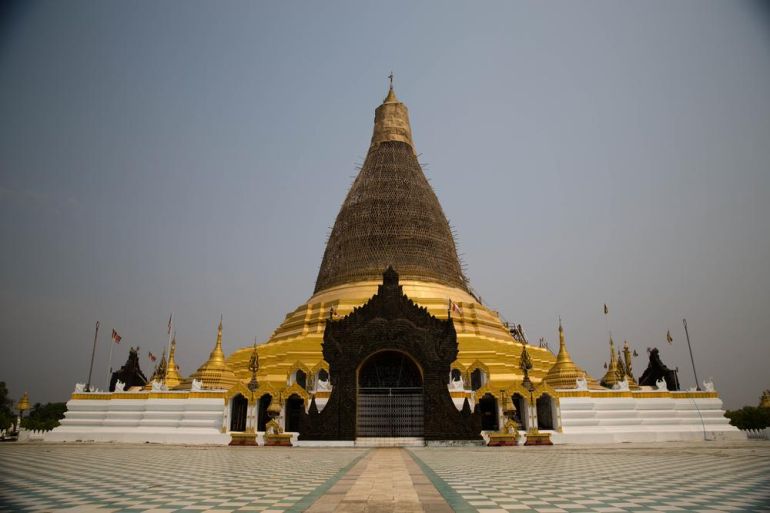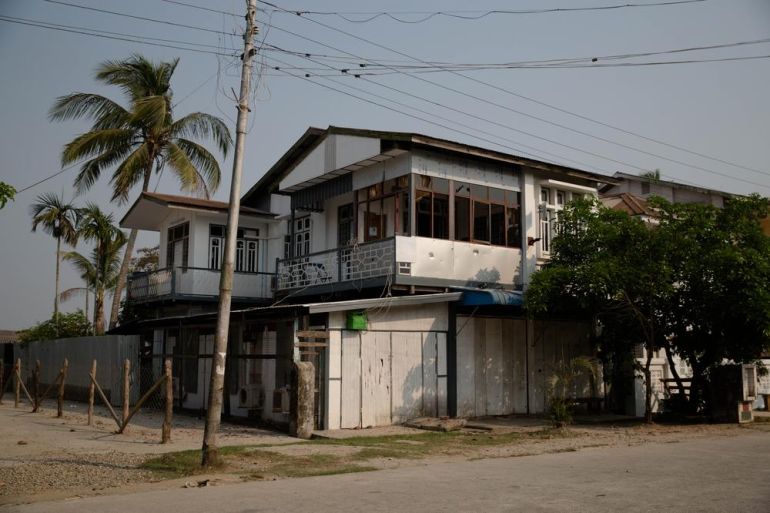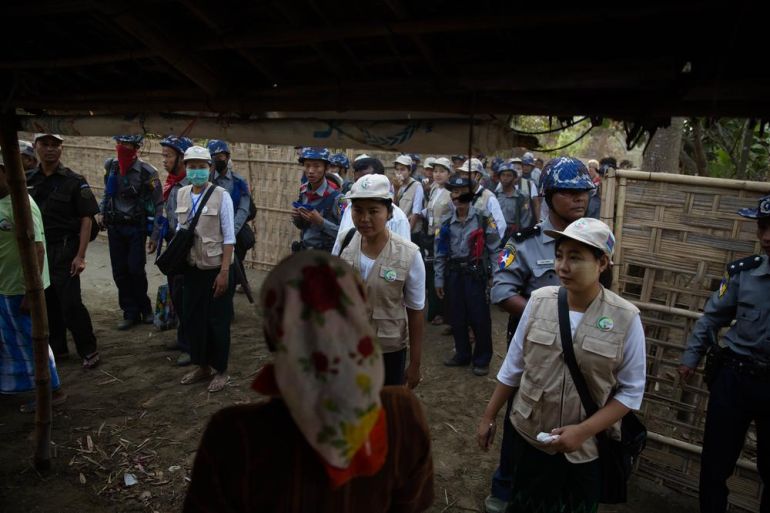In Pictures
In Pictures: Myanmar’s census bars Rohingya
Muslim Rohingya are excluded from political representation as a result of not being counted.

Myanmar’s million-plus Muslim Rohingya population doesn’t officially exist on government records. Branded “Bengali” and considered illegal immigrants, they’ve been living under systematic discrimination since sectarian violence erupted in 2012 in the coastal Rakhine state.
In the past six months, resentment of aid groups has been building among some Buddhists because of charities’ perceived preferential treatment of the Rohingya, who make up the vast majority of those displaced by the recent unrest. Many aid groups that once provided life-giving support to the Rohingya’s squalid camps have either been banned or forced to flee, their compounds ransacked by Buddhist mobs.
The mobs gathered after a UN-backed national census, the country’s first in 30 years.
The headcount officially began on March 30, despite threats of violence and questions of ethnicity and religion that could re-ignite conflict in an already deeply fractured country.
Rights groups and think tanks advised the government to delay the census or remove questions concerning race and religion because of Myanmar’s fragile stage in transition from dictatorship to “disciplined democracy”.
The UK’s Department for International Development donated £10 million ($16m) to the project.
Days before the count, Buddhist nationalists – roused by hard-line monks – threatened to boycott the census if the Rohingya registered their ethnicity.
In an attempt to keep the peace, the government barred Rohingya from taking part in the census unless they identified themselves as “Bengali”.
The UN Population Fund said it was “deeply concerned about the departure from international census standards”.








